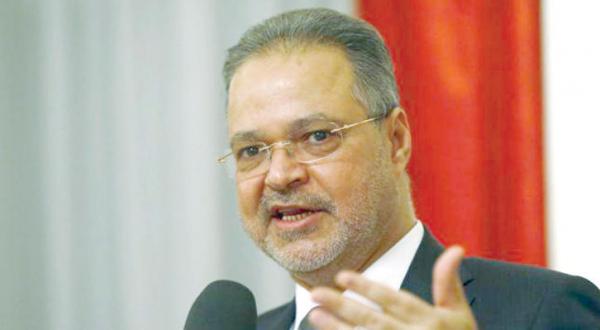Kuwait- Yemeni Deputy Prime Minister and Foreign Minister Abdul Malik Al Mekhlafi, who is also heading the government delegation at the peace talks underway in Kuwait, said that the government delegation will not be leaving Kuwait before being officially informed of the failure of the international efforts pushing Houthis to sign a document committing to six demands and acknowledging the legitimacy of the Yemeni President Abd Rabbuh Mansur Hadi.
He further confirmed that the international community has proven supportive to the Yemeni government’s demands at the peace talks.
Mekhlafi, in his interview with Asharq Al Awsat newspaper, urged the international community to side with the Yemeni government should Houthis refuse to concede to any decision taken at the negotiations. He drew comparison between the insurgency delegation, Houthis, and the government’s delegation which is practicing self-restraint and has conceded to several arguments in an effort to arrive at a peaceful solution for the Yemeni community.
As for violations committed by Houthis against the cessation of hostilities, Mekhlafi said that the approved ceasefire stipulates the right to self-defense, which means that a response taken by designated governmental departments to defend the people of Yemen will be permitted.
He further pointed out that the government is saving no effort to bolster the ceasefire prior to Ramadan, which is set to start on June 5.
Efforts are also being directed towards freeing Taiz from besiegement. Should negotiations fail, Mekhlafi hopes that progress could at least be registered on the four topics discussed by the British and U.S. ambassadors.
The topics were also discussed with a number of other European ambassadors, economic representatives and fellow brothers in Saudi Arabia.
Following is a set of questions answered by Foreign Minister Abdul Malik Al Mekhlafi:
What were the most noteworthy topics discussed during the meetings over the last two days?
All those with whom the government delegation sat in Kuwait, have expressed their deep appreciation for the stances taken by the government, the efforts spent by the delegation so far and the compromises provided to facilitate the course of negotiations.
They fully acknowledge the hardships at hand and understand our stance, reassuring the delegation that the international community and the United Nations support all demands we made at the peace talks. Also, they displayed their desire for the government’s delegation to return to the negotiations.
How did the government respond to such endeavors?
When ambassadors of sponsoring countries request our return to negotiations, we reassure them that the government’s delegation has yet not left Kuwait. However, we have suspended our contribution after 35 days being wasted over the negotiations; which proved, over and over again, the Houthi delegation’s indiscretion to any topic they were faced with.
We have agreed to all remarks made by the U.N. Special envoy to Yemen Ismail Ould Cheikh Ahmed, meanwhile, the Houthi delegation practices rejection to every chance it gets. We have urged partakers at the negotiations to employ their influence over the Houthis to cement all that has been agreed upon and achieve progress.
Have any pressures been exercised against the government’s delegation?
There is no pressure on the government delegation; rather, there are serious efforts spent on establishing strong foundations for the peace process. How could peace talks launch if there is no solid background for them to lean on? This is the framework which Houthis should attend if they wish to arrive to a solution.
What is the solid background the government delegation wishes to establish?
We have requested the signing of a document enlisting six demands, which are requested in reference to the Gulf initiative, U.N. resolution 2216 and the outcome of national dialogue. We have sent in writing to the U.N. Special Envoy Ahmed stressing the necessity of a document existing that guarantees the continuance of the negotiations; especially after Houthis staged a series of manipulative ploys.
